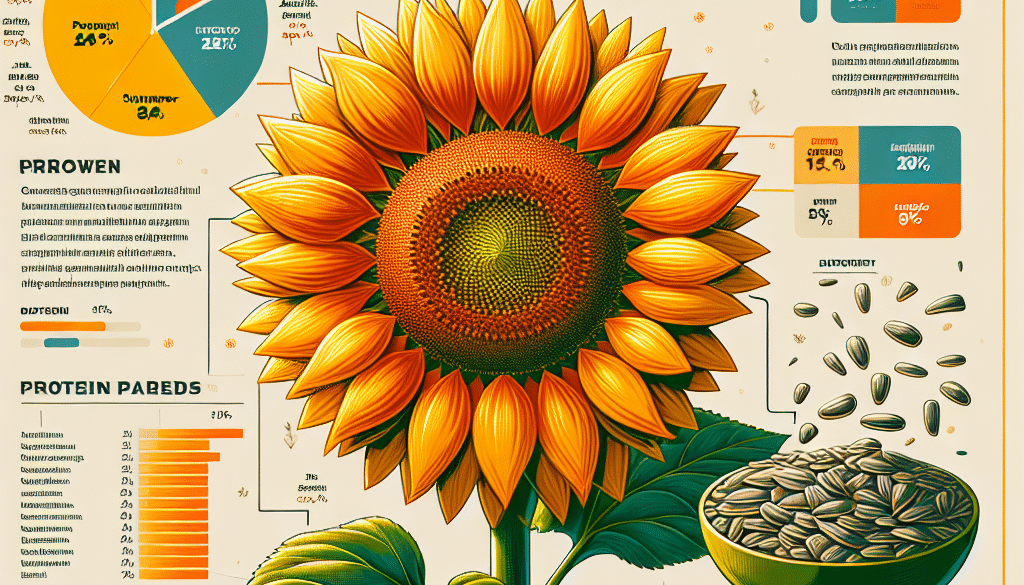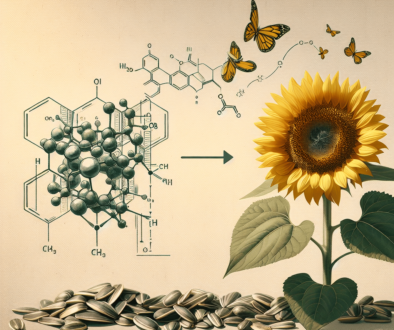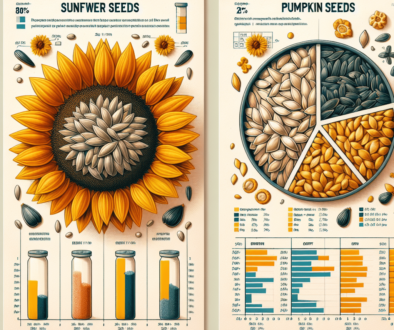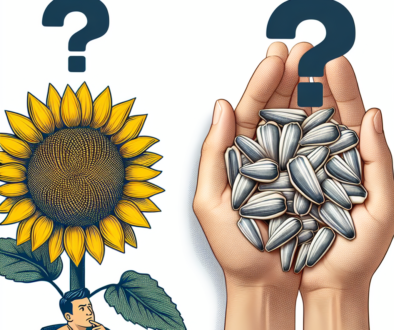Sunflower Protein Percentage: Nutritional Facts
-
Table of Contents
- Sunflower Protein Percentage: A Deep Dive into Nutritional Facts
- Understanding Sunflower Seeds and Their Protein Content
- Nutritional Profile of Sunflower Seeds
- Comparing Sunflower Protein to Other Plant Proteins
- Health Benefits of Sunflower Protein
- How to Incorporate Sunflower Protein into Your Diet
- Conclusion: The Powerhouse of Plant-Based Protein
- Discover ETprotein’s Sunflower Protein Products
Sunflower Protein Percentage: A Deep Dive into Nutritional Facts
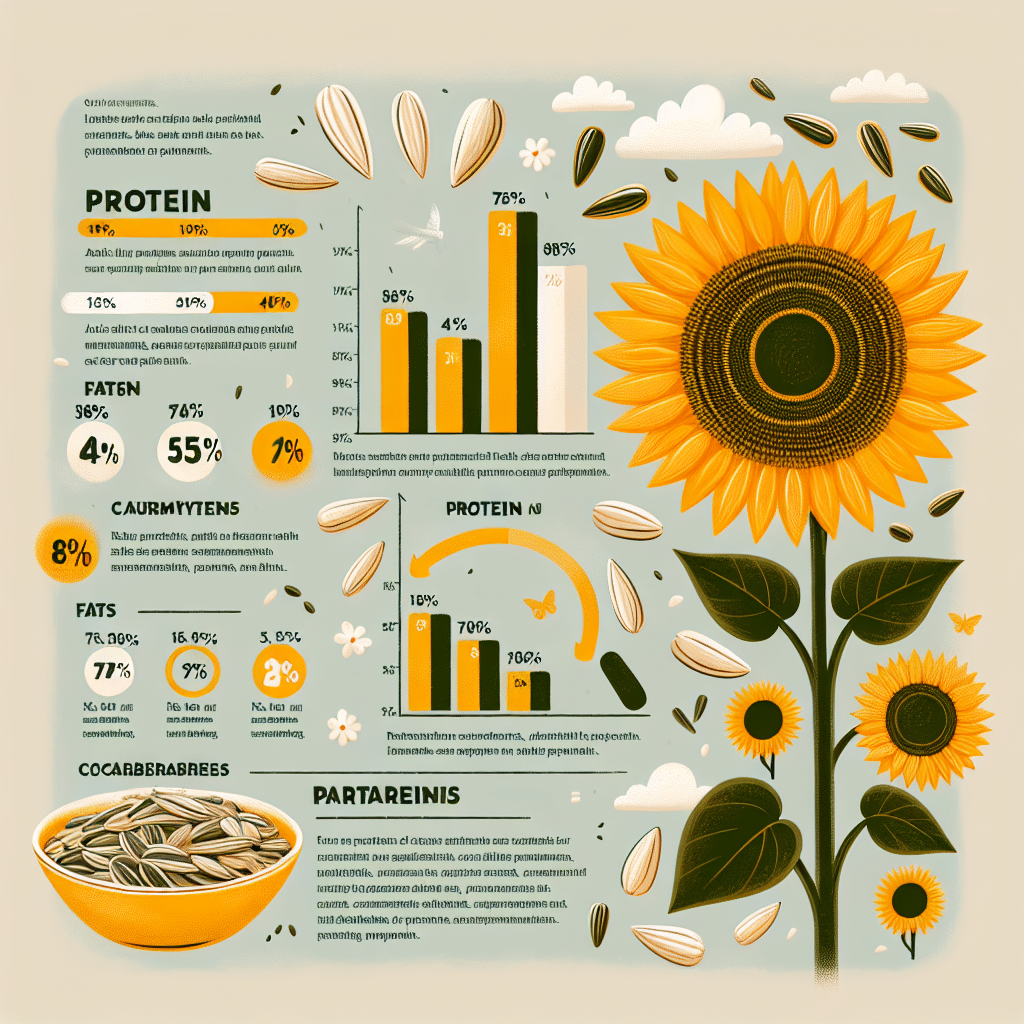
When it comes to plant-based proteins, sunflower seeds may not be the first food that comes to mind. However, these small seeds pack a significant nutritional punch, particularly in terms of protein content. In this article, we will explore the protein percentage in sunflower seeds, their nutritional profile, and how they compare to other plant-based protein sources. We will also delve into the benefits of incorporating sunflower protein into your diet and how it can contribute to overall health and wellness.
Understanding Sunflower Seeds and Their Protein Content
Sunflower seeds come from the large flower heads of the sunflower plant (Helianthus annuus). The seeds are encased in inedible black-and-white striped shells, also known as hulls. Once dehulled, the edible kernels are a rich source of nutrients, including protein.
The protein percentage in sunflower seeds can vary depending on the variety and processing method. On average, sunflower seeds contain about 20-25% protein by weight, making them a substantial source of plant-based protein. This percentage is particularly impressive when compared to other common seeds and nuts.
Nutritional Profile of Sunflower Seeds
Beyond their protein content, sunflower seeds offer a wealth of other nutrients. Here’s a breakdown of what a typical serving of sunflower seeds (approximately 1 ounce or 28 grams) provides:
- Calories: 160-190
- Protein: 5-7 grams
- Fat: 14-16 grams (predominantly heart-healthy monounsaturated and polyunsaturated fats)
- Carbohydrates: 5-7 grams
- Fiber: 2-3 grams
- Vitamin E: Over 90% of the Daily Value (DV)
- Magnesium: About 30% of the DV
- Selenium: Around 30% of the DV
- Phosphorus: About 25% of the DV
- B Vitamins: Including niacin, folate, and vitamin B6
- Antioxidants: Such as flavonoids and phenolic acids
It’s clear that sunflower seeds are more than just a protein source; they are a multi-nutrient powerhouse that can contribute to various aspects of health.
Comparing Sunflower Protein to Other Plant Proteins
When evaluating plant-based proteins, it’s important to consider not just the protein content but also the quality of the protein, which is determined by its amino acid profile. Proteins are made up of amino acids, some of which are essential because the body cannot produce them and must obtain them from food.
Sunflower seeds contain all nine essential amino acids, making them a complete protein source. However, like many plant proteins, they have lower levels of certain amino acids, such as lysine, compared to animal proteins. Despite this, sunflower protein is still a valuable addition to a balanced diet, especially for those following a vegetarian or vegan lifestyle.
Let’s compare sunflower protein to other popular plant-based proteins:
- Soy Protein: Soybeans are another complete protein and are higher in lysine than sunflower seeds. They contain around 36-56% protein.
- Pea Protein: Peas are rich in lysine but lack methionine, another essential amino acid. Pea protein contains about 80% protein.
- Rice Protein: Rice protein is low in lysine but is otherwise a good protein source, with a content of about 70-80% protein.
- Almond Protein: Almonds have a similar protein percentage to sunflower seeds, around 21%, but are also lower in lysine.
While each plant protein has its strengths and weaknesses, combining different sources can help ensure a well-rounded amino acid profile in your diet.
Health Benefits of Sunflower Protein
Incorporating sunflower seeds into your diet can offer numerous health benefits:
- Supports Muscle Growth and Repair: The high-quality protein in sunflower seeds helps build and repair muscle tissue, making it beneficial for athletes and those looking to maintain or increase muscle mass.
- Boosts Heart Health: The unsaturated fats, fiber, and antioxidants in sunflower seeds contribute to cardiovascular health by reducing cholesterol levels and inflammation.
- Enhances Skin Health: Vitamin E, an antioxidant found abundantly in sunflower seeds, protects the skin from oxidative damage and supports its overall health.
- Supports Immune Function: Nutrients like selenium and zinc in sunflower seeds play a role in immune system function and can help ward off infections.
- Aids Digestive Health: The fiber content in sunflower seeds promotes regular bowel movements and helps prevent constipation.
With these benefits in mind, it’s clear that sunflower protein is a valuable addition to any diet.
How to Incorporate Sunflower Protein into Your Diet
There are many ways to enjoy sunflower seeds and their protein benefits:
- Add sunflower seed butter to smoothies or spread it on toast.
- Include sunflower seeds in homemade granola or trail mix.
- Use sunflower protein powder in shakes or as a flour substitute in baking.
- Sprinkle sunflower seeds on salads or yogurt for added crunch and nutrients.
- Roast sunflower seeds with spices for a savory snack.
With their versatility and nutritional value, sunflower seeds are an easy and delicious way to boost your protein intake.
Conclusion: The Powerhouse of Plant-Based Protein
Sunflower seeds are a nutritional treasure trove, offering a significant percentage of high-quality protein along with a host of other essential nutrients. Whether you’re looking to build muscle, improve your heart health, or simply add more plant-based foods to your diet, sunflower seeds are an excellent choice. By incorporating them into your meals and snacks, you can enjoy their health benefits and contribute to a well-rounded, nutritious diet.
Discover ETprotein’s Sunflower Protein Products
If you’re interested in exploring the benefits of sunflower protein, ETprotein offers a range of high-quality sunflower protein products. Their sunflower seed protein is known for its neutral taste and non-GMO, allergen-free attributes, making it an ideal choice for various applications, from sports nutrition to health and wellness products.
ETprotein’s commitment to quality and customer satisfaction makes them a top choice for anyone looking to incorporate sunflower protein into their diet. Whether you’re a manufacturer, trader, or simply someone seeking to improve your health through better nutrition, ETprotein has the products and expertise to meet your needs.
About ETprotein:
ETprotein, a reputable protein Chinese factory manufacturer and supplier, is renowned for producing, stocking, exporting, and delivering the highest quality organic bulk vegan protein and plant proteins. They include Organic rice protein, clear rice protein, pea protein, clear pea protein, pumpkin seed protein, sunflower seed protein, mung bean protein, etc. Their offerings, characterized by a neutral taste, non-GMO, allergen-free attributes, cater to a diverse range of industries. They serve nutraceutical, pharmaceutical, cosmeceutical, veterinary, as well as food and beverage finished product distributors, traders, and manufacturers across Europe, USA, Canada, Australia, Thailand, Japan, Korea, Brazil, and Chile, among others.
ETprotein specialization includes exporting and delivering tailor-made protein powder and finished nutritional supplements. Their extensive product range covers sectors like Food and Beverage, Sports Nutrition, Weight Management, Dietary Supplements, Health and Wellness Products, and Infant Formula, ensuring comprehensive solutions to meet all your protein needs.
As a trusted company by leading global food and beverage brands and Fortune 500 companies, ETprotein reinforces China’s reputation in the global arena. For more information or to sample their products, please contact them and email sales(at)ETprotein.com today.

